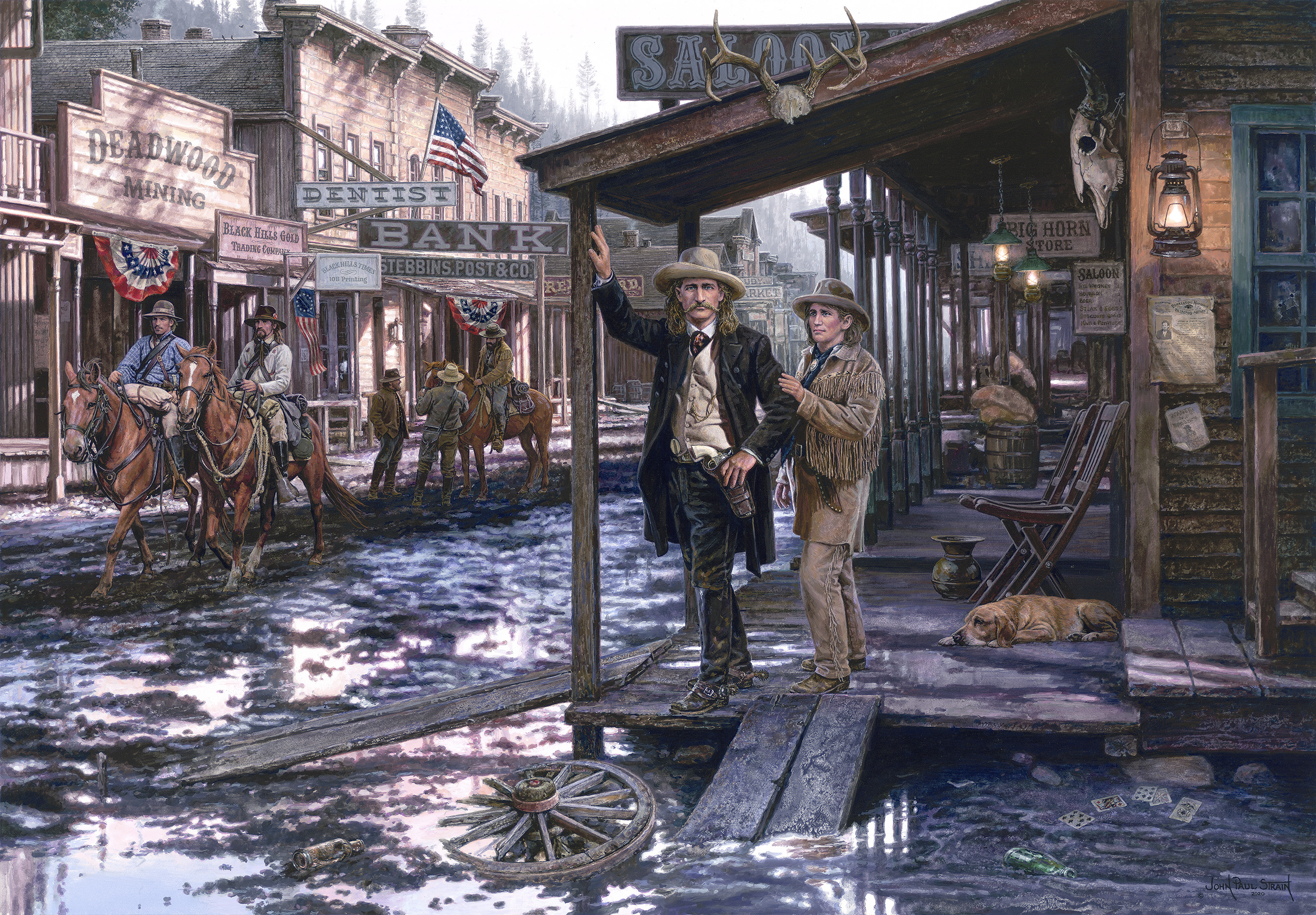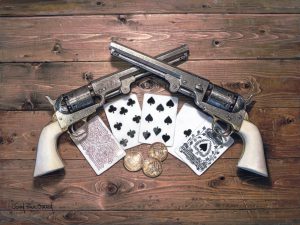WILD BILL HICKOK AND CALAMITY JANEDeadwood, Dakota Territory - July 1876
One of the most famous legends of the American frontier was James Butler Hickok, also known “Wild Bill”. Through his many exploits, Hickok became known as the premier gunfighter of the American West. Lawman Wyatt Earp once said, “Bill Hickok is regarded as the deadliest pistol shot alive, as well as being a man of great courage”. James Hickok was born into a large family on May 27, 1837 in Troy Grove, Illinois. After his father died, 18 year old James headed west into Kansas Territory to begin his life as a frontiersman. From an early age James had an unusual ability as a pistol marksman. After arriving in Kansas Territory he joined a Jayhawker militia, and rode against pro-slavery Missourians in the area, honing his skills with a pistol on horseback. For work he became a teamster and It was during this time that he would meet “Buffalo Bill” Cody, who would become a life long friend. With his imposing frame of 6’3”, cool demeanor, and a reputation as a marksman, Hickok was soon asked to serve as a bodyguard for Union General James Henry Lane in Leavenworth, Kansas. When the Civil War broke out, he served as a spy and scout for Major General Samuel R. Curtis. “Wild Bill,” as he had come to be known, disguised himself as a Confederate soldier and gathered information about enemy troop movements for the general. He also scouted for Lieutenant Colonel George Armstrong Custer. In Custer’s book, My Life on the Plains, he wrote about Hickok, “Of his courage there could be no question. His skill in use of the rifle and pistol was unerring. His deportment was entirely free of bravado… His influence among frontiersmen was unbounded, his word was law, and many are the personal quarrels and disturbances which he had checked among his comrades… I have a personal knowledge of at least half a dozen men who he has at various times killed, others have been seriously wounded—yet he always escaped unhurt in every encounter.” After the war, Wild Bill Hickok moved to Hays City, Kansas where he was appointed sheriff, and later as marshal of Abilene. Both towns had become outposts for lawless men before Hickok arrived and turned things around. Hickok met Martha Jane Canary, also known as “Calamity Jane” on a wagon train headed north from Fort Laramie, Wyoming. The two became friends as Calamity was infatuated with the now famous lawman, gun fighter and celebrity of Buffalo Bill’s Wild West show. In 1876, Calamity Jane settled in the area of Deadwood, South Dakota in the Black Hills. She became friends with Dora DuFran who was the leading madam of the area and worked for Dora on occasion. She continued her friendship with Hickok when he moved to Deadwood in July 1876 to prospect for gold and gamble in the evenings at the local saloons. But his few weeks in Deadwood would end tragically in Nuttal & Mann’s Saloon (sometimes referred to as the “Saloon No. 10”) when he would draw what would become known as the deadman’s hand of “Aces and Eights”. Archival Paper Giclées
Canvas Giclées
|


